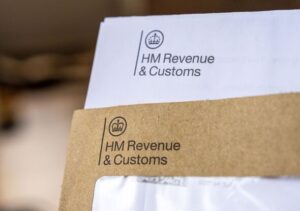
Loyalty pricing at UK supermarkets does provide “genuine savings” to customers, but customers should still shop around as it is not always the cheapest option, a competition watchdog has found.
Following an analysis of 50,000 loyalty-priced items, the Competition and Markets Authority (CMA) discovered that 92% offered discounts on the standard price, with potential savings of up to 25% on loyalty-priced products.
However, the regulator emphasised that while these discounts are “legitimate”, customers may still find more affordable alternatives by shopping around.
The CMA also identified areas for improvement in accessing loyalty schemes, suggesting that supermarkets could enhance accessibility for individuals without smartphones and those under 18.
Proposed solutions include introducing offline registration methods, such as in-store or phone sign-ups, and lowering the minimum age requirement for loyalty scheme participation.
George Lusty, interim executive director of consumer protection, said: “We know many people don’t trust loyalty card prices, which is why we did a deep dive to get to the bottom of whether supermarkets were treating shoppers fairly.”
“After analysing tens of thousands of products, we found that almost all the loyalty prices reviewed offered genuine savings against the usual price a fact we hope reassures shoppers throughout the UK. While these discounts are legitimate, our review has shown that loyalty prices aren’t always the cheapest option, so shopping around is still key.”
The CMA scrutinised loyalty pricing strategies at major supermarkets including Tesco, Sainsbury’s, Morrisons, Waitrose and Co-op.
During its investigation, the CMA explored the possibility of supermarkets inflating regular prices to make loyalty prices seem more attractive.
The findings revealed that customers could save between 17% and 25% on average by opting for products with loyalty prices at the five supermarket chains examined.
Despite the potential savings, consumer confidence in these promotions is low, with a CMA survey indicating that 55% of consumers suspect regular prices are raised to enhance the appeal of loyalty deals. The survey also showed that 76% of people haven’t changed their shopping habits due to loyalty pricing, but 24% are now more likely to compare prices because of it.
Concerns about fairness have also emerged, as 43% of participants feel it’s unjust for members to receive lower prices than non-members on certain items. Additionally, the CMA’s comprehensive review included an assessment of how supermarkets handle customer data within loyalty schemes. The report concluded that there was no evidence of consumer law violations in this matter.
Sue Davies, head of food policy at Which?, found the results “reassuring” but maintained reservations about loyalty pricing tactics.
She commented: “Which? has also looked at prices for thousands of products and repeatedly found examples of loyalty price offers that aren’t as good as they seem.”
Ms Davies further noted: “We have also raised concerns that millions of consumers are being excluded from accessing lower prices due to loyalty scheme restrictions.”
She stressed the importance of supermarkets heeding the CMA’s advice, stating: “It’s therefore essential that supermarkets act on the CMA’s recommendation and do more to enable people to join their schemes.”
















